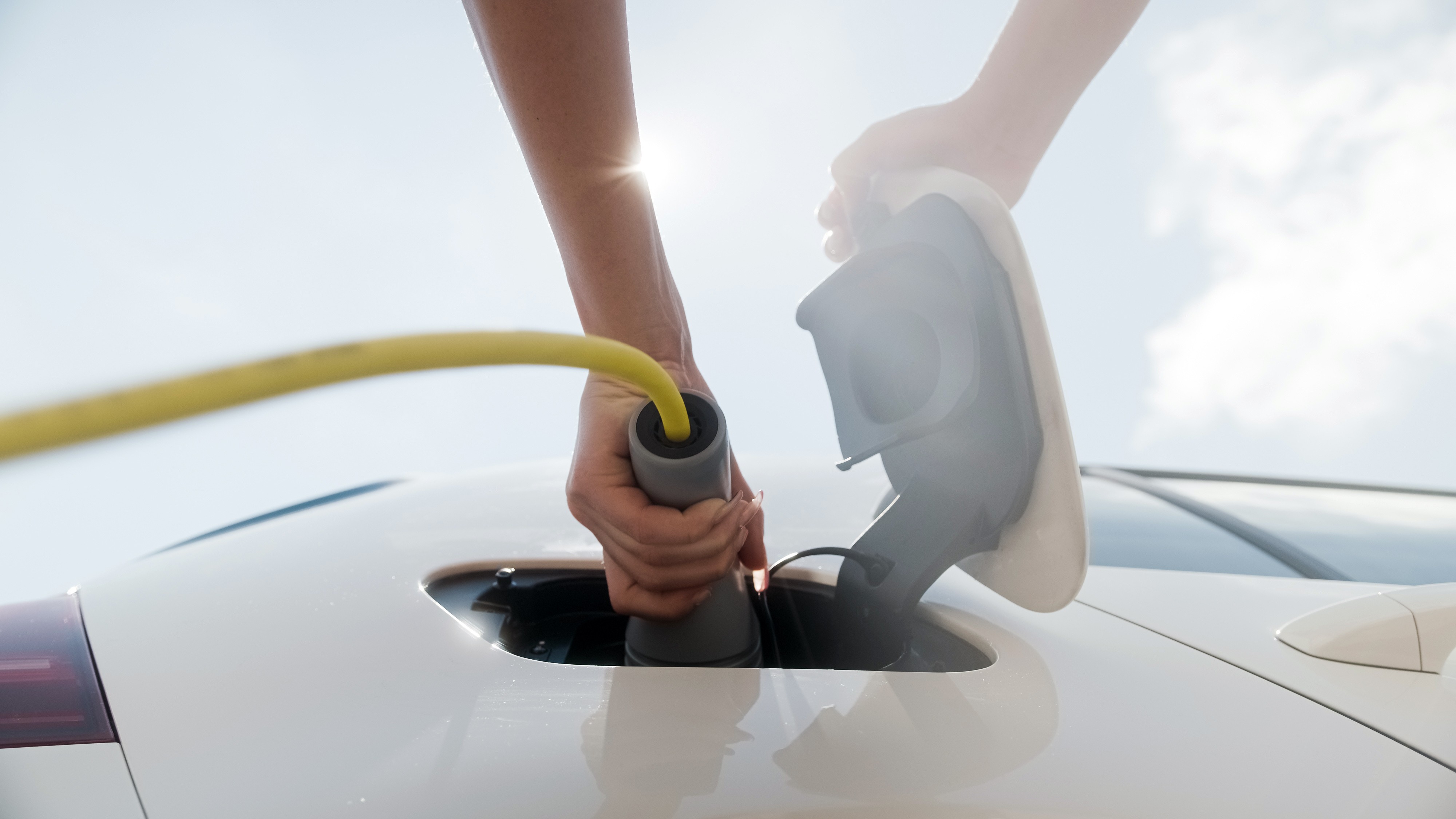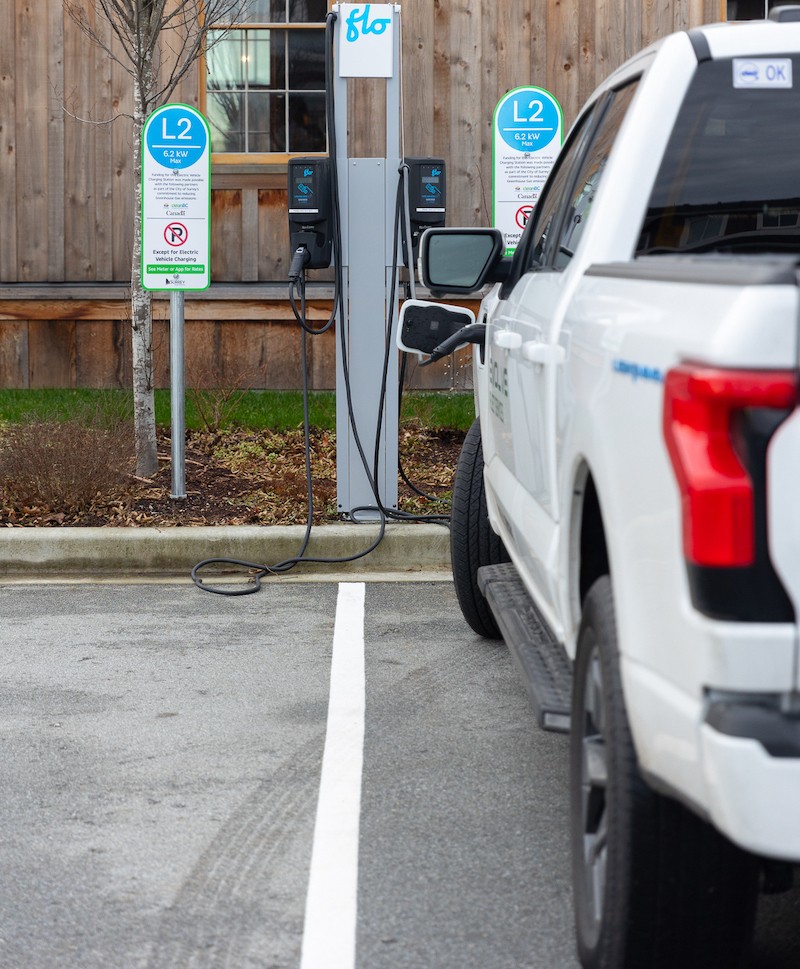Cut costs and carbon with Evolve Fleet
Evolve can create a data-driven roadmap to reduce your vehicle emissions

There’s a new data-driven approach to get your company on the road to reducing its carbon footprint.
Evolve Fleet’s team and platform use telematics tools, benchmarks, rebates, charging data and more to create a roadmap for a company’s specific vehicle goals.
“First you have to understand the needs of the organization, what is required, what are vehicles being used for, what is working, what is not working, and based on that analysis, we can come back and make recommendations on first steps,” explained Jasin Azzopardi, Vice President and General Manager of Evolve Fleet. “We have to determine the usage of the vehicles and also what the company’s goals are. Is your motivation carbon reduction? Is it marketing because of your industry? Do you want to get carbon credits? Understanding that motivation is key so we can make good recommendations.”
He noted that there are several common concerns that clients have when they decide to reduce the carbon footprint of a fleet:
- Do EVs have enough range for the purpose of the asset?
- What sort of charging infrastructure is required?
- How much will it cost to switch to EVs?
- How much value do EVs retain over time?
To address these concerns, Evolve digs deep into the data. They test internal combustion engine vehicles and electric vehicles in various use cases to determine cost, carbon emissions, performance and other metrics to create benchmarks. They can also use telematics to track driver behavior, idle time, charging, range and more to tease out what tools are the best fit for a client.
“The Evolve portal allows us to bring that data into one place and not only make appropriate recommendations but demonstrate that data to the client,” said Azzopardi.

How much is too much?
When it comes to cost, EVs can leave some with sticker shock. But one has to dig into the details. Azzopardi explained that Evolve can crunch the numbers to determine if that investment will save money in the long run. Their experts can also help companies navigate government programs to take advantage of rebates or other incentives that can drive cost lower.
“Clients often don’t know how to apply for those and if they qualify, so we manage that process for them,” said Azzopardi.
Depending on the type of vehicle and the province, rebates can take tens of thousands of dollars off the price. And there are even carbon credits that can be earned from using EV chargers.
Exploring benefits
Azzopardi noted that in addition to making a company more socially responsible and improving one’s brand image, there are also long-term cost benefits to including EVs in one’s fleet.
“Beyond fuel savings, EVs have very little maintenance requirements to the point where they are almost non-existent,” he said. “The only thing you have to do really is tires and brakes. No oil changes, no tune ups or timing belts.”
And the technology is only improving and expanding. Regenerative brakes are being used to help charge the car with the energy produced during breaking. Rapid chargers are cutting down on the time it takes to charge vehicles. Strategy for targeted heating and cooling is making batteries more efficient. Manufacturers are also beginning to expand in the mid-duty truck market, creating more commercial use cases.
When it comes to the far future, Azzopardi believes sustainable vehicle technology could expand to more parts of the construction site.
“I suspect we will see a surge in hydrogen vehicles,” he said.
While the idea of using hydrogen as fuel isn’t new, momentum for the technology has been growing and the next 12 months could see major progress. CP Rail plans to begin operating its first hydrogen locomotive, a hydrogen fuelling station is under construction in Edmonton to allow semi-truck testing on the province’s highways, and construction has just begun in Edmonton on the world’s largest net-zero hydrogen plant.
A changing industry
During his nearly three decades in the industry, Azzopardi has seen attitudes shift.
“It definitely has changed over the years, during my career, many of my largest accounts have been oil and gas (energy sector) accounts. Everybody wants to be a good corporate citizen,” he said.
It’s also becoming a larger component of winning work.
“For large accounts with bigger fleets that typically do public sector work, if you are responding to an RFP for something like garbage disposal in West Vancouver, there will be ESG questions
and you will have to demonstrate how your company is forward facing. For that reason alone, you aren’t going to prosper without an ESG strategy.”
To get your company’s fleet greening journey started, visit evolvefleet.com for a free consultation. Additionally, for those interested in how zero-emission vehicles will suit their daily operations and are looking at short-term solutions or testing opportunities, Evolve fleet offers electric fleet rentals so you can see if they are right for your business.

